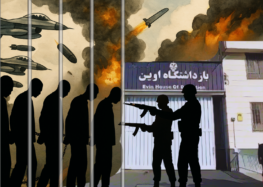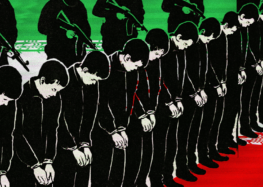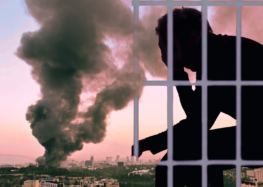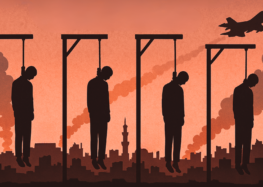Executions Useless in Preventing Drug Crimes says Prominent Iranian Lawyer
In an interview with ISNA (the Iranian Student News Agency), the prominent Iranian lawyer Nemat Ahmadi lambasted Iran’s anti-drug law, calling it “lacking in preventive powers” despite its stipulation of the death penalty as punishment for drug traffickers.
“We have no other laws about drug trafficking, and because the anti-drug law was passed by Iran’s Expediency Council, the Iranian Parliament is unable to make modifications to it,” Ahmadi added.
Nemat Ahmadi told ISNA that intensified punishments and the death penalty for drug trafficking convictions have proven ineffective over the years, and have also brought criticism by human rights organizations of the high rate of executions in Iran.
“A review of the number of drug-related executions must be conducted. We observe that, unfortunately, the issue [of drug trafficking] continues in our country. Therefore, we must say that intensifying punishments is not preventive,” he said to ISNA.
“More than 4,000 police forces and 12,000 citizens have lost their lives in the war against drugs,” said Ahmadi. Referring to more than 270,000 drug trafficking convicts inside Iranian prisons, he added, “Two-thirds of our prisoners are drug-trafficking convicts. In fact, if drug trafficking suspects or convicts are released from prison, our prisons will have an occupancy [rate] below international standards.”
The UN Special Rapporteur on the situation of human rights in Iran, Ahmed Shaheed, has repeatedly objected to the executions of drug trafficking convicts in Iran. International law states that capital punishment must be reserved for the “most serious crimes,” and drug-related offenses are not considered in that category. The vast majority of executions in Iran are carried out for drug-related convictions.
In Dr. Shaheed’s latest report to the UN Human Rights Council in March 2015, he cited statistics that challenged Iranian officials’ statements about the deterrent effects of capital punishment on drug trafficking.
During his presentation of the report to the Council, Dr. Shaheed said that more than 1,005 executions had been carried out over the past 14 months, numbers that are unprecedented over the past 12 years. At least 753 executions were carried out in 2014 and 252 were carried out in just the ten weeks preceding the report.
Contrary to statements made by the head of the Iranian delegation, Dr. Shaheed said that most executions carried out in Iran do not meet international standards for the “most serious crimes.” In addition to drug-related executions, he noted that issuing death penalty sentences for crimes such as adultery, alcohol consumption, vague national security charges, and charges such as “corruption on earth” are illegal according to international laws.
Dr. Shaheed also pointed out that in 2014, 13 executions of individuals under the age of 18, or individuals who were not 18 at the time they committed their crimes, were carried out, which is against international law as well.
Mohammad Javad Larijani, Head of the Iranian Judiciary’s Human Rights Council, has steadfastly defended its high execution rate and its execution of drug-related convicts, asserting that “the world [should] be grateful for this great service to humanity.”







